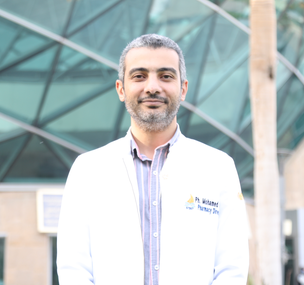Pharmacogenomics (PGx) studies how an individual's genetic makeup affects their drug response. In cancer, PGx helps personalise treatment by identifying drug efficacy and toxicity variations based on genetic variants.
Why is PGx important in oncology?
Cancer is a complex disease with diverse tumour types and individual responses to treatment. PGx can help optimise drug dosages, minimise side effects, and improve treatment outcomes for individual patients.
What are the main types of genetic variations relevant to PGx in cancer?
Germline variations: These are inherited genetic changes that remain constant throughout the body. They influence drug metabolism and response across various medications.
Somatic variations: These are acquired mutations found only in cancer cells and may directly affect drug targets, influencing the effectiveness of specific cancer treatments.
Which regulatory bodies provide PGx information on drug labels?
Several organisations, including the US FDA, European Medicines Agency (EMA), Swissmedic, Health Canada (HCSC), and Pharmaceuticals and Medical Devices Agency (PMDA) in Japan, provide PGx information in drug labels. However, the level of detail and recommendations can vary between them.
What are some examples of PGx guidelines for specific drugs in oncology?
Thiopurines: Guidelines recommend dose adjustments based on TPMT and NUDT15 genotypes to avoid severe myelosuppression.
Fluoropyrimidines: Recommendations advise genotyping for DPYD variants and suggest alternative drugs or dose adjustments for patients with low enzyme activity to prevent severe side effects.
Cisplatin: TPMT preemptive testing is recommended for children receiving cisplatin due to its association with hearing loss.
Anthracyclines: CPNDS guidelines recommend genotyping for UGT1A6*4, SLC28A3, and RARG variants in pediatric patients to assess anthracycline cardiotoxicity risk and adjust monitoring and treatment plans accordingly.
What are the challenges of PGx implementation in clinical practice?
Despite its immense potential to revolutionise cancer treatment, PGx faces several challenges in becoming a routine part of clinical practice. These challenges can be broadly categorised into three main areas:
Awareness and education
Limited awareness among healthcare workers and patients: Many healthcare professionals lack sufficient knowledge and training in PGx, hindering their ability to interpret test results and integrate them into treatment decisions. Moreover, patients often remain unaware of how their genes can influence their response to medication, limiting their active participation in treatment choices.
Inconsistent guidelines and regulations: Lack of standardised guidelines across different healthcare systems creates confusion and inconsistency in PGx implementation.
Integration and accessibility
Logistical hurdles in integrating testing into routine care: Integrating PGx testing into existing clinical workflows presents logistical challenges, requiring additional resources, personnel, and efficient data management systems.
Reimbursement issues: Uncertainty about insurance coverage for PGx testing can limit its accessibility for patients, particularly those with limited resources.
Ethical consideration
Privacy concerns: Concerns about the privacy and security of genetic data require careful consideration and robust ethical frameworks to build trust and protect patient autonomy.
Informed consent and potential discrimination: Ensuring patients understand the implications of PGx testing and obtaining informed consent before testing requires clear communication and education. Avoiding potential discrimination based on genetic information is crucial.
What are the future directions to accelerate PGx implementation?
Future efforts should focus on:
Education and training programmes: Focused educational programmes for healthcare workers and patients can increase awareness, improve understanding, and build confidence in PGx.
Development of standardised guidelines and decision support tools: Collaborative efforts among stakeholders can establish clear guidelines and user-friendly tools to facilitate seamless integration of PGx into clinical practice.
Research and development: Continuing research on the genetic basis of drug response and developing new, cost-effective PGx tests can improve affordability and accessibility.
Advocacy and policy changes: Engaging policymakers and healthcare systems to recognise the value of PGx and explore reimbursement models can ensure broader access to this technology.
Addressing ethical concerns: Building robust ethical frameworks prioritising patient privacy, informed consent, and non-discrimination can foster trust and public acceptance of PGx.
Finally, pharmacogenomics (PGx) has the potential to revolutionise cancer treatment by enabling personalised, safer, and more effective treatment tailored to an individual patient's unique genetic makeup.
Despite several challenges in its implementation, we can overcome these hurdles by pursuing future directions that focus on education, research, policy changes, and ethical considerations. By doing so, we can pave the way for the widespread implementation of PGx in clinical practice and improve treatment outcomes for cancer patients.

Dr. Mohamed Nagy will be speaking at the NextGen Medicine conference at 4.15pm today.

